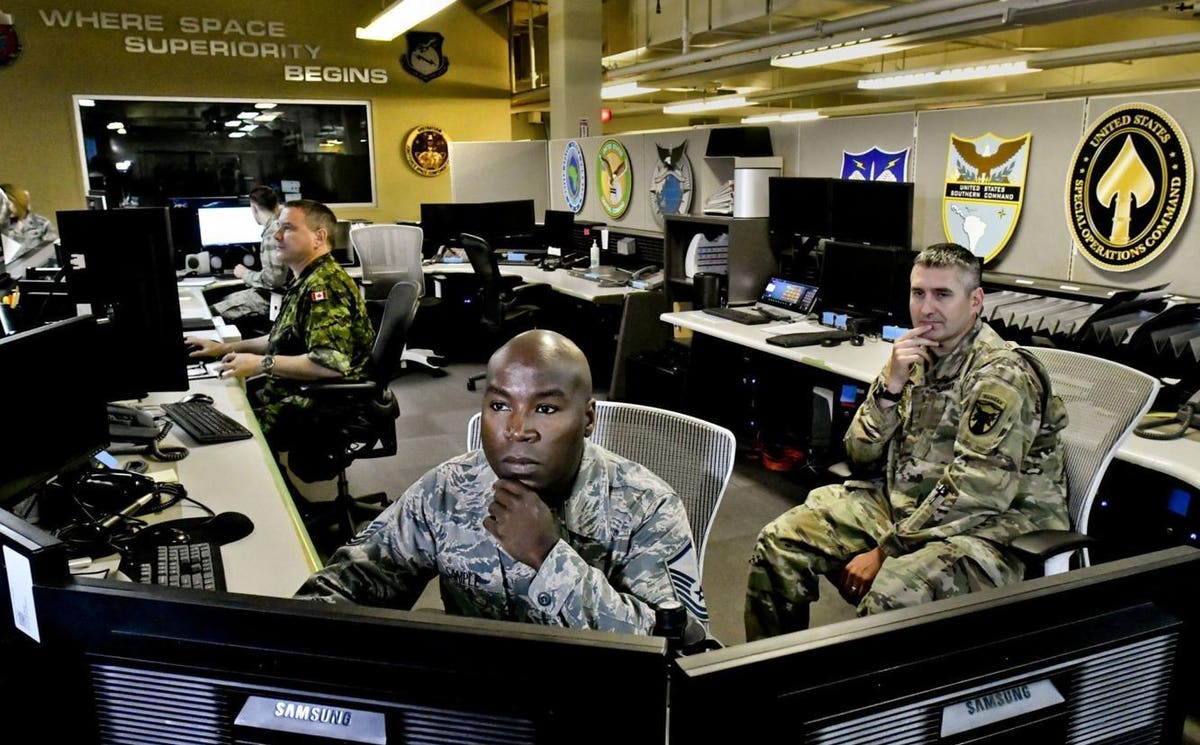In a radical departure from every other military service doctrine ever drafted, the Space Force’s new four-star Chief of Space Operations (CSO) recently made a groundbreaking distinction from its five sister services that went largely unnoticed.
“Our goal is perpetual competition,” said General Saltzman, amounting to one of the most profound policy observations of space deterrence since Cold Warriors hammered out the Outer Space Treaty. “That means orienting ourselves around the idea that there is no end-state, there is no victory in space because if you do this right, you never fight.”
He went on to add, “I’m convinced that old methods, old mindsets are not going to be effective in addressing these new challenges.” This is highly unusual – if there is one value the military esteems more than any other, especially its general officer corps, it is tradition. But in a radical departure from the status quo, Gen. Saltzman criticized the old way of doing business, claiming it is “too slow, too late to need, and too behind the times to meet the challenges we face.” Some of us were worried that this kind of space maverick, though sorely needed, might have come too late. But as luck would have it, he has arrived just in time.
Gen. Saltzman views the Space Force as unique among the other services in that at its best, it must aspire to stability to ensure free access to space for government and industry alike. A quick analysis of the President’s 2024 appropriation request shows that a full two thirds of the total Space Force funding is contracted out to the space industry. This isn’t for Guardians’ pay and benefits (4%); it’s not even for facilities. Operations and maintenance are also largely contracted out too, meaning that over 90 percent of the total labor to accomplish the Space Force mission is led and managed by contractors, not uniformed Guardians or Space Force civil servants, whose job it is to manage them. Simply put, the business of the Space Force is business.
The Space Force’s prime directive is towards a safe, perpetual state of competition with its near peer adversaries. Perhaps our young Guardians can hone the unique leadership skills that will be essential at the geopolitical and strategic level by leading in a similar fashion. With the US Space industry almost completely in their control, the contractor workforce that makes up two thirds of their mission must be reimagined to foster the perpetual competition it also needs to thrive.
Doing so would require a significant break from the past, but it is desperately needed. For decades, space acquisitions have too often been a winner take all game for many of these so-called “franchise programs.” It has also become the basis of the Pentagon’s flawed cost estimating functions, which prioritize predictability over innovation and taxpayer value and have only led to spiraling overruns. Most importantly though, culturally it is the exact opposite of what the CSO hopes to achieve with China, our pacing threat in the coming years. In fact, very little of the capabilities the government hopes to acquire today are truly competed in an open marketplace, save for the work of a few specialized offices like the Space Development Agency.
This will require more than an increased focus on education, and Gen. Saltzman reminds us “we must collectively train like we fight.” We need to add to that and equip like we want to fight in the context of a rigorous but steady competitive environment. Unlike the other services, the Space Force can equip its forces with the same goal of perpetual competition, because the commercial marketplace has grown quickly over the last 10 years and there are many materiel options from which it can choose. If we train our future Guardians how to think about a healthy state of regenerative competition before they become senior officers, then the Space Force will understand – fundamentally – how to devise policies and procedures that ensure continuous competitions of resources and cultivate the hybrid space economy, which underpins nearly all of what they do.
Today, the same gravy train of sole source contracting remains the default position for many of these missions, and puts forth very little competition for best value, quality, or even ideas. As a result, Guardians and taxpayers alike lose out on their ability to have options.
President Biden recently addressed the graduating class at the US Air Force Academy, saying “I’ve always believed that America is strongest when we lead, not by the example of our power but by the power of our example.” Regardless of which side of the political aisle his audience is on, there is not a single person in uniform today who will disagree with this statement. The USSF has the opportunity of a lifetime to set a new and fitting course for industry, reap enormous savings and innovations for the taxpayer and warfighter, and lead the world by example.
Read the full article here





